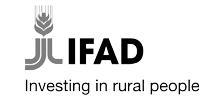SAPP commits to sustainable development goal no 05 – Gender equality
# Smallholder Agribusiness Partnerships
SAPP commits to sustainable development goal no 05 – Gender equality
Under the 2030 development agenda, the United Nations (UN) defined 17 global goals in 2015. In an understanding of our global needs, it vows to “leave no one behind.” Following the SDGs, SAPP conducted inclusive programs in Sri Lankan rural communities through the International Fund for Agricultural Development.
Gender equality is a key component of SAPP’s women’s empowerment programs. It provides technology, know-how, financing, and decision-making leadership abilities to women and men in rural areas.
By deconstructing traditional ideas regarding women, SAPP was able to assist young women in improving their livelihood options. She now runs her own business with the help of a youth funding program.
“Hello, my name is Shanika, and I’m 30 years old. I wasn’t always a farmer. I started out working from home, but now I’m a thriving greenhouse bell pepper entrepreneur. I can simply work with labor-saving solutions thanks to the greenhouse technology and watering system. Watering the plants takes 30 minutes. Only one switch is required to water a green house. I’m leaving my children off at school and returning in 30 minutes. I am proud of myself as a woman. Currently, I am not reliant on my partner’s earnings. He also pushed me to create this company. I make a good living while also caring for my children and family members.”
As a result of SAPP’s women’s empowerment training, many women, like Shanika, have been able to confront traditional gender norms. SAPP contributes to the SDGs through developing gender-equal and gender-sensitive projects in the community by giving empowering opportunities, know-how, and technology. Many women now work for themselves and provide a stable income for their families and communities.
More than 300 youths currently participate in the SAPP greenhouse youth program, which has a vital market chain in Sri Lanka. People’s lives are made more sustainable by sustainable revenue sources. SAPP’s purpose is to make a tangible difference in the lives of rural women. Investing in women benefits their children, families, and communities as well.
SAPP helps to achieve SDG 05 by empowering women in rural regions. It addresses patriarchal and systemic concerns of gender equality in order to ensure that rural women have access to profitable market possibilities. SAPP is also important in bridging decision-makers for policy execution. As a result, SAPP has a worldwide influence through contributing to SDG 5.





